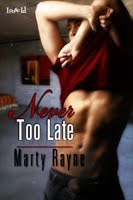 When I was young I lived for books. Eating, going to school and acknowledging the existence of my parents were all just unwelcome interruptions to my reading. I would wake up almost two hours before I needed to be at school in order to have more time to read in peace. My natural ungainliness led to multiple accidents when I experimented with trying to read whilst walking the dog or even riding my bike. The real world paled in comparison to the worlds within books.
When I was young I lived for books. Eating, going to school and acknowledging the existence of my parents were all just unwelcome interruptions to my reading. I would wake up almost two hours before I needed to be at school in order to have more time to read in peace. My natural ungainliness led to multiple accidents when I experimented with trying to read whilst walking the dog or even riding my bike. The real world paled in comparison to the worlds within books.The genres I read were determined largely by what was available in bulk. I read my way voraciously through the entire stock of my small town public library and haunted the new books rack. I was an almost daily customer at the local book exchange but my habits obliged me to limit myself largely to the two cheapest shelves. The exchange stocked used books and listed two prices on the cover, what you paid and the amount that would get back if you returned the book. Literary hardbacks reached lofty figures such as $1/50c, but both romances and westerns were much more accessible at 30c/20c (although the proprietor would tease me because, packrat that I was, I never returned a single one of those grubby yellowbacks). My budding mind was steeped in the frustration and joy of the most popular comfort genres of the days, each story following a tried and true arc of hope, obstacle, effort and victory while my real life was stuck in a bucolic New Zealand town.
But, to be honest, it was the dour cowboy anti-hero who drew me the most. To my mind, the idea that these adventures were set in American history was quite beside the point. It never occurred to me to care whether the historical setting was accurate; the Wild West nestled beside Narnia and Earthsea in a foggy map of places a Kiwi girlchild cannot really visit except through a literary portal.
Very early on I developed a realization that the books were fantasies. Impoverished flower-girls did not really get swept off their feet by brooding Dukes, any more than a fast draw could stop you from getting thoroughly aerated when you stood up to five bad guys in an open street. I was vaguely dissatisfied with events such as ladies wearing small masks becoming completely unrecognizable, grown women passing as boys and rough highwaymen robbing unescorted ladies only of their, um, pearls. But if that is what needed to happen for the hero to take up his noble mantle, then I was willing to suspend disbelief from quite dizzying heights.
And so, weaned upon my treasured pulps, I finally ventured to write an ‘historical’ tale or two. Well, to be quite specific, two. My western ‘Dealing Straight’ (Loose Id) and my regency ‘The Highwayman’ (Cobblestone Press). I am heartily fond of both stories, and intermittently deeply guilty. And this is why: I respect the pin point accuracy and authentic detail of thorough historical romance writers. Roberta Gellis is my personal hero, and Chelsea Quinn Yarbro books take up an entire shelf beside my writing desk. But my greatest love is still the pulp novel where women act like modern harridans in Tudor costume and cowboys gallop all day across the desert without even watering their horses.
I wrote ‘Dealing Straight’ while living in Scotland, having barely ever set foot in the USA and to this day I have never been anywhere that could easily be described as ‘west’. I own one non-fiction book about the historical west, but I have not read it. I have ridden a horse, briefly, twice—and thoroughly hated it both times. My research for ‘The Highwayman’ was reading one book about highwaymen throughout history—which shows quite clearly that they were largely rampant murders and rapists who deserved the gallows they went to; and the first series of the ‘Dick Turpin’ series from the seventies on DVD—whose implausibly bloodless antics suited me rather better.
And yet, let a writer set their tale in my backyard and they had better get it right! No Kiwi heroes speaking like Crocodile Dundee, no psychologists whose theories seem to come from the unholy lovechild of Freud and a fortune cookie, no new age vegetarian super-wolves, please. So where does that leave me? At this point, something of a hypocrite unless you will accept my proposition that there are two quite separate genres here, historical and history-lite:
Historical writing makes every effort to be accurate, the writer poring over their sources, comparing contrasting claims and hunting down the earliest and most consistent accounts. The story is slipped into the voids between those people who did exist, riding the tides of those things that did actually happen. It is an extraordinary and superior skill to be able to marry history to fiction and honor both. It is not a skill that I, as yet, can claim—bat also not, perhaps, one I aspire to.
History-lite or popular history is more like an alternative universe. In this place, based entirely on other fictions or accounts of dubious merit, good guys wear white hats and you can shoot the buttons of a man’s shirt with homemade bullets from an unrifled pistol barrel. The pony express in this West is a life-staving legend that made orphans into heroes, not a money-losing mistake that lasted a few short months. Meanwhile the regency ladies are, as far as we can tell, in possession of all their teeth, clean in body and clothing and constantly at a ball--and the hero, no matter how rampant in his wild youth, will never come down with syphilis.
Places like the Wild West no longer exist merely (did I really write ‘merely’?) as history, they are a place of dreams and ideals where Wyatt Earp wears low cut Levi’s and Calamity Jane is a svelte bottle-blonde. But this tradition of the West is as much a part of the west as the dreary reality—after all, it was started by the men and women who lived in the real thing—and chose in their own tales, memoirs and shows to seriously embellish upon the truth from the very beginning. Their own serialized tales were also more costume drama that memoir – to an extent that would have made Le Vey look like a dour archivist.
Fiction offers many layers of fantasy and these faux versions have their own extensive rules and canon to observe and peculiarly—their own history--and serve their own purpose. It is up to reader and writer to decide which they prefer. As, I realize, I have done.
When I read a story set in New Zealand I prefer the native voice or a thoroughly researched simulacrum, because I am wedded to the real country which one can still visit—and I would argue we have little in the way of a parallel mythology to draw upon. Whilst there is a rampant mythology about psychology and profiling, being acquainted with the real thing I prefer the authentic voice and avoid the pop psych extremes some readers revel in (and don’t begrudge their preference!). But while many might prefer the gritty truth of the Victorian American frontier I prefer the land I first discovered, mapped by Grey and Lamour as lovingly as Middleearth for all its outrageous inaccuracies.
It is Gotham not New York, Disney not Animal Planet, -- a highwayman is not, for me, a mugger with silver buckled shoes. He is indeed a creature no less mythical than a unicorn or superman, but in my world he is neatly placed, and after a fashion, real. So my guilt in writing historical of a less than authentic stripe is no worse than my feeling after eating a whole pack of cookies on my own. Maybe it wasn’t good for me, but I like the way it tastes—and I hope at least some of my readers do too. Which is not to say that I don’t like the occasional gourmet pudding too….



















No comments:
Post a Comment